Is your baby overly fussy during or directly after feedings? Have you noticed an increase in gassiness or a change in your baby’s stools?
If you answered yes to any of these questions, you might be wondering if it’s your baby’s formula that is causing these problems. And if your baby’s formula is the reason, you might start wondering about changing baby formula, from switching formula brands to the plant-based milk instead of cow’s milk, such as soy formula.
But if that’s the case, how to tell if your baby needs soy formula? Do you switch to soy formula as an experiment on your own, or is there a guide to it?
Thankfully, you don’t have to figure this out on your own. Read our article to find out.
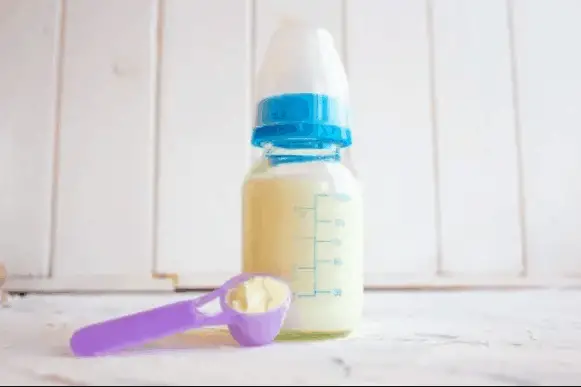
Understanding Soy Milk vs. Cow’s Milk
Around 80% of baby formula sold is cow’s milk-based formula. Although it is a cow’s milk-based formula, this formula has been drastically changed to make it safe for infants to consume.
To make the proteins found in the cow’s milk formula more digestible for infants, the formula is treated using several different methods, including heating.
To ensure a concentration similar to breast milk, lactose is added to cow’s milk-based formulas. Vegetable oils and other essential fats are used to replace the butterfat found in actual cow’s milk.
These fats are easier for infants to digest and are important for their growth. All cow’s milk-based formulas contain added iron to help reduce the risk of iron-deficiency anemia.
Soy-based baby formula contains soy protein along with either glucose or sucrose for the carbohydrate. Soy-based formula does not contain any lactose, which is the carbohydrate found in cow’s milk formula. An example of a popular soy formula many parents go for would be the Enfamil ProSobee Soy Infant Formula.
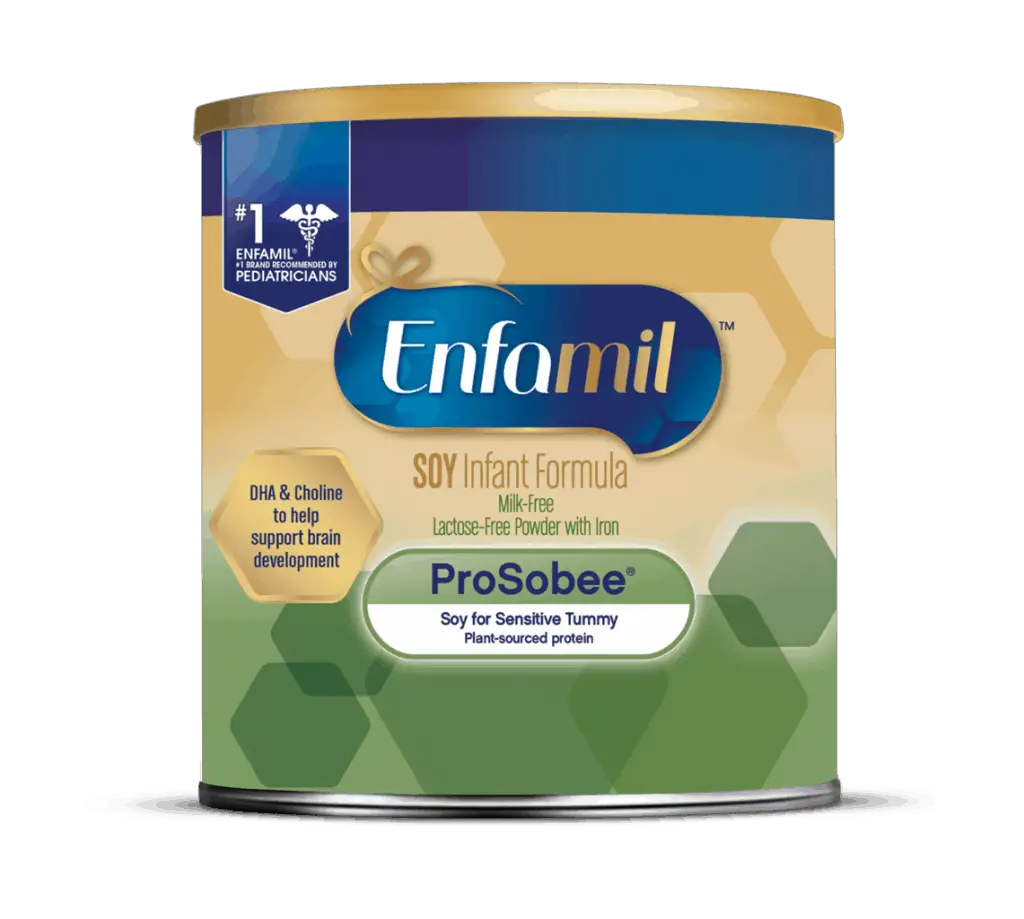
Some parents who follow a vegan or vegetarian diet opt for soy-based formula over cow’s milk formula because it doesn’t contain animal products. Other parents use soy-based formulas because their babies have a hard time digesting lactose, also known as lactose intolerance.
Soy milk is growing in popularity, with parents trying to avoid giving their toddlers cow’s milk, while others opt for soy because of milk allergies.
However, some babies with a true milk allergy also have problems with soy protein, so never change baby formula until you have spoken with your child’s pediatrician.
In fact, choosing soy milk over cow’s milk is not recommended because soy doesn’t contain the same amount of fat per serving as whole cow’s milk.
Whole milk offers 8 grams of fat per serving, while soy only provides 4 to 5 grams per serving. Soy is an excellent substitute for cow’s milk in children older than two because children up to the age of two need the higher fat content per serving for optimal brain development and growth.
How to Tell if Your Baby Needs Soy Formula?
Many parents are concerned about the type of baby formula they are using, as they only want what is best for their newborn babies. In some cases, babies might have a weird reaction to a specific type of formula, such as excessive fussiness during or after feeding.
They might be more gassy than usual, or their stools might suddenly change. To deal with these changes, many parents think they need to switch baby formula, but there are a few considerations to deal with.
How to Know When to Switch Formula
The answer to how to know when to switch formula is best answered by watching for signs that formula isn’t agreeing with baby.

The most common signs that your brand of formula doesn’t agree with your baby is excessive gas, crying or fussiness, along with tummy pain and frequent spit-up.
While these are the most common signs to look for before talking to your pediatrician about switching formulas, here are some others:
- Discomfort during feedings
- Problems sleeping
- Unexplained rash
- Projectile vomiting/Not keeping formula down
- Not getting enough iron
- Weakness or fatigue
- Allergies
- Wheezing after feeding
- Constant diarrhea
However, if your baby keeps rejecting the current formula due to the formula taste, you shouldn’t be quick to jump on to soy formula though. Instead, learn to slowly introduce the formula to your baby and seek your pediatrician’s advice if you are still having trouble.
When to Switch to Soy Formula
The best way to know when to switch to soy formula is when your pediatrician recommends it. Only a few medical conditions require a switch to soy formula; most of the time, though, it’s not needed.
Those medical conditions include:
- Temporary lactase deficiency along with diarrhea when diagnosed by a pediatrician. It is not recommended to switch to soy formula due to diarrhea alone.
- Galactosemia, which is one of the things they screen for during the newborn screening test. So, parents will know at birth if their baby has this rare disorder. This rare condition prevents babies from breaking down and digesting galactose, commonly found in breastmilk and cow’s milk-based formulas.
- Primary lactase deficiency prevents babies from digesting the sugar lactose because they lack the proper enzymes.
Another reason to switch to soy formula is because of diet restrictions. Vegetarian parents often opt for soy-based formulas because they don’t contain any animal products.
Vegan parents who aren’t breastfeeding also opt for soy formula as no vegan-based infant formulas are available. The closest you can get to a vegan baby formula is an organic soy formula.
Is Soy Formula Safe for my Baby?
In most cases, soy formula is entirely safe for your baby, but that doesn’t mean you should run out and switch to soy formula. If you want to change formulas, talk with your baby’s pediatrician first.
Why is Soy Formula Not Always Recommended for Babies?
Soy formula is not always recommended for babies, especially for premature babies. The AAP (American Academy of Pediatrics) hasn’t found any evidence that soy isoflavones cause any kind of harm to how babies develop. Still, they do have concerns with using it for premature babies.
One concern some experts have is in regards to the isoflavones, which as a type of phytoestrogen. These isoflavones may mimic estrogen type activities when ingested.
The concern is how they affect a child’s immune and thyroid function. The other problem is the high amount of aluminum found in soy formula compared to breastmilk and cow’s milk formula. In premature babies, it can contribute to reduced bone mineralization.
Is Soy Formula Good for Gassy Babies?
Babies produce a lot of gas because as their digestive system breaks down their food, it turns into gas. Another reason for gassy babies is that they often take in extra air when sucking on pacifiers, eating, or crying.
Some parents opt for anti-colic bottles to feed their baby as a measure to reduce gassiness. Burping and various movements can also help eliminate gas in babies, but what about switching to a soy formula?
Soy formula is not recommended for gassy babies because it doesn’t help relieve the symptoms of gas in babies though. Instead of switching to a soy-based formula, you want to select a baby formula that reduces the amount of digestive gas your baby produces when breaking down their food.
Some of the recommended formula for gassy babies include:
- Enfamil Nutramigen
- Similac Sensitive Infant Formula
- Enfamil Enspire Infant Formula
- Enfamil Neuropro Gentlease Infant Formula
- Gerber Good Start Soothe Infant Formula
- Earth’s Best Organic Low Lactose Sensitivity Infant Formula with Iron
Enfamil’s Nutramigen is one of the best choices for gassy babies as it’s completely hypoallergenic, making it one of the gentlest formulas on the shelves today.
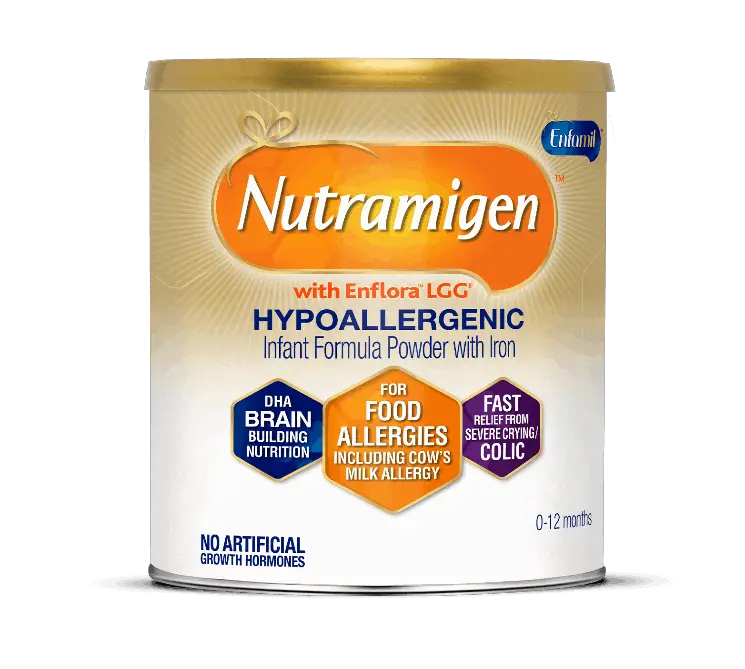
Enfamil Enspire Infant Formula is another excellent choice for solving gas issues as its formula is the closest alternative to breastmilk Enfamil has to offer.
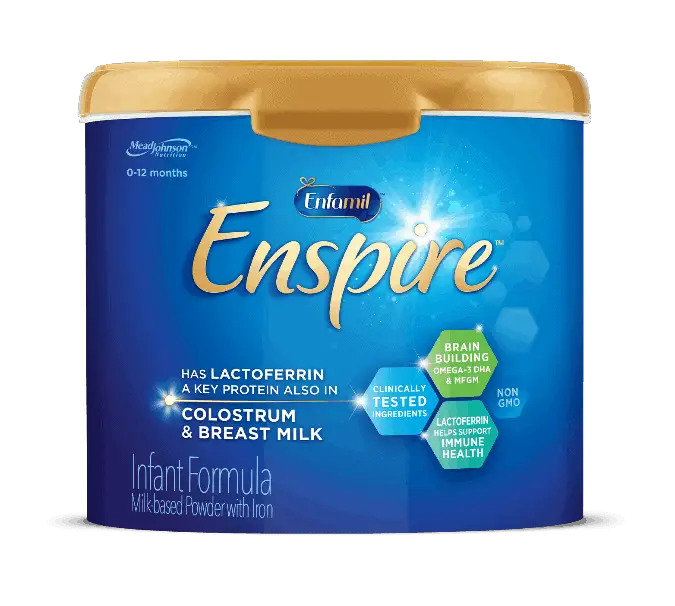
The Enfamil Neuropro Gentlease Formula is a milk formula specially formulated to tackle baby’s tummy issues like gas. Many parent attest to this product, saying that this is one of the best formulas for babies with a sensitive stomach.
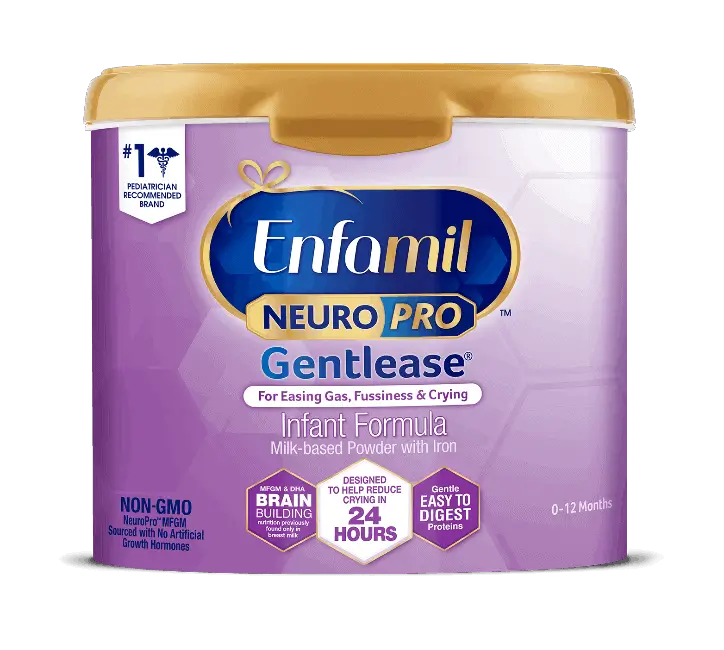
When You Should Not Switch your Baby to Soy Formula
No matter how tempting it might be or how much you think it will help relieve some of your baby’s symptoms, we do not recommend switching to soy formula without first talking to your pediatrician. After all, you definitely want your can of formula to last and not end up as a waste of money.

Sometimes parents wonder whether “my baby needs soy-based formula” because their baby cries excessively after feeding or because they might be at risk for various food allergies. Again, you should never act on your own but to seek advice from pediatricians first.
In addition to that, experts don’t recommend switching to soy formula for any of the following reasons:
- Prematurity – many feel soy-based formulas cause reduced bone mineralization in premature babies, even with calcium supplements. Wait until your baby has reached their actual due date before considering soy.
- Cow’s Milk Protein Allergy – Many infants with a cow’s milk protein allergy are also sensitive to soy protein. Instead of soy, consider switching to a hydrolyzed protein formula, like the Enfamil Nutramigen.
- Higher risk for food allergies – babies at a higher risk of developing any kind of food allergy should stay away from soy. The reason being that soy is one of the more common food allergens. Instead of soy formula, you could consider going for other formula that is hypoallergenic.
- Excessive fussiness caused by colic – switching formula will not solve the issue of colic.
Conclusion
The bottom line is that, knowing when to use soy formula is best determined by your pediatrician. No matter how tempting it might be to switch to a soy-based formula because your baby is too gassy, spits up a lot, or for any other reason we have outlined above, don’t make the switch without first consulting with your baby’s doctor.
In most cases, soy formula isn’t harmful, but it is not often the solution to the problem at hand.
If you have any concerns, comments, or suggestions on how to tell if your baby needs soy formula, please take a moment to add your thoughts to our discussion by leaving a comment below.
—
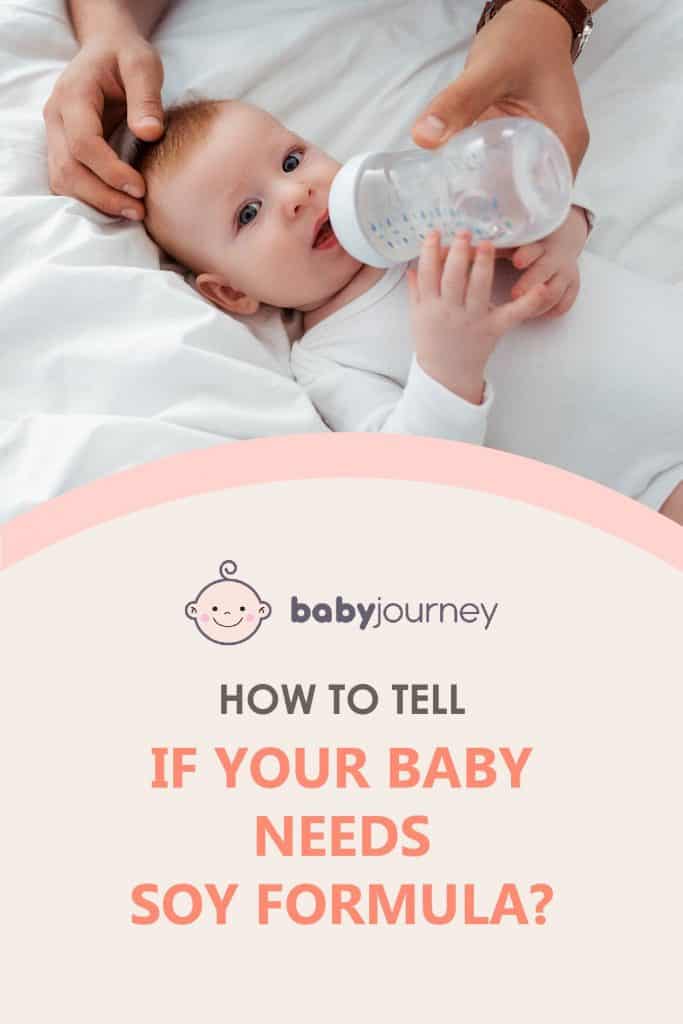

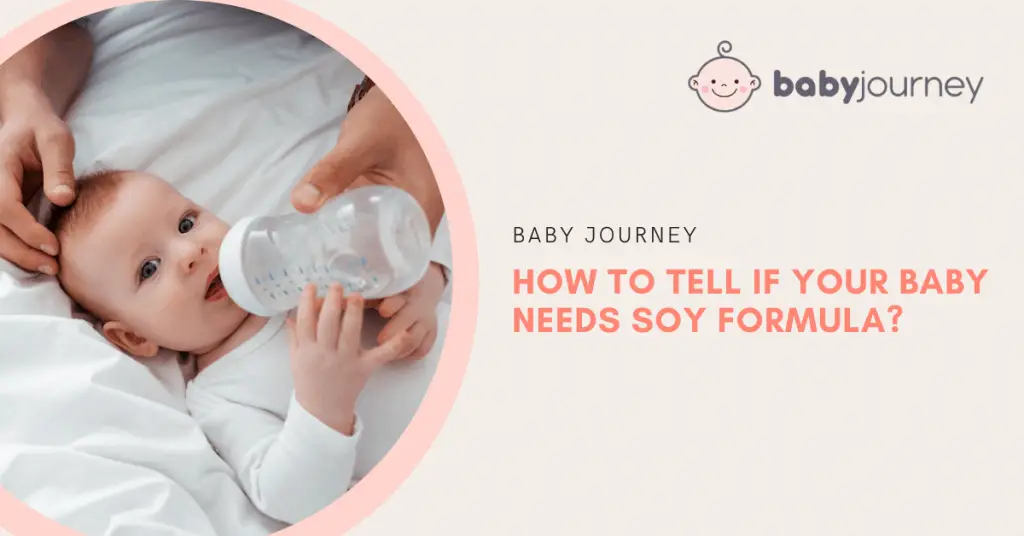
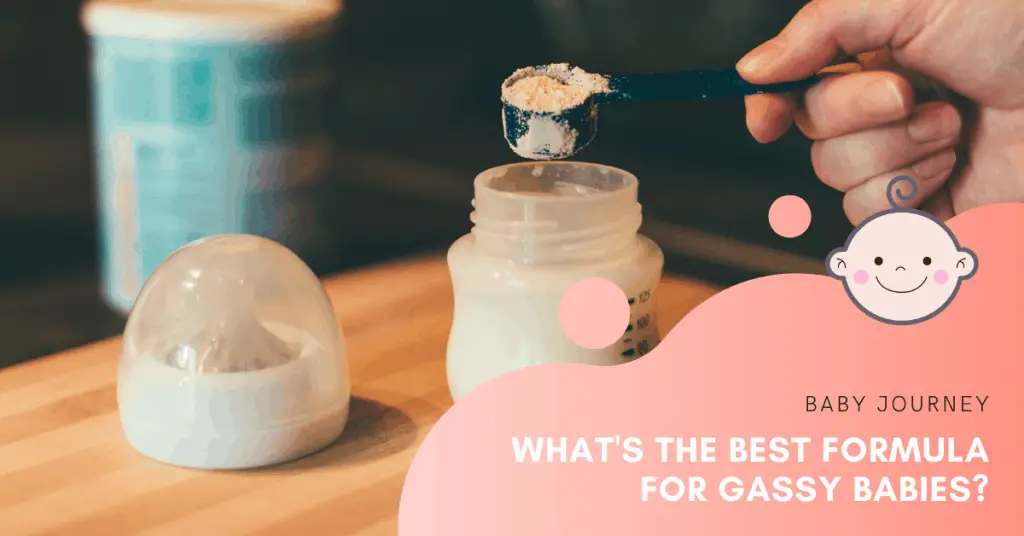
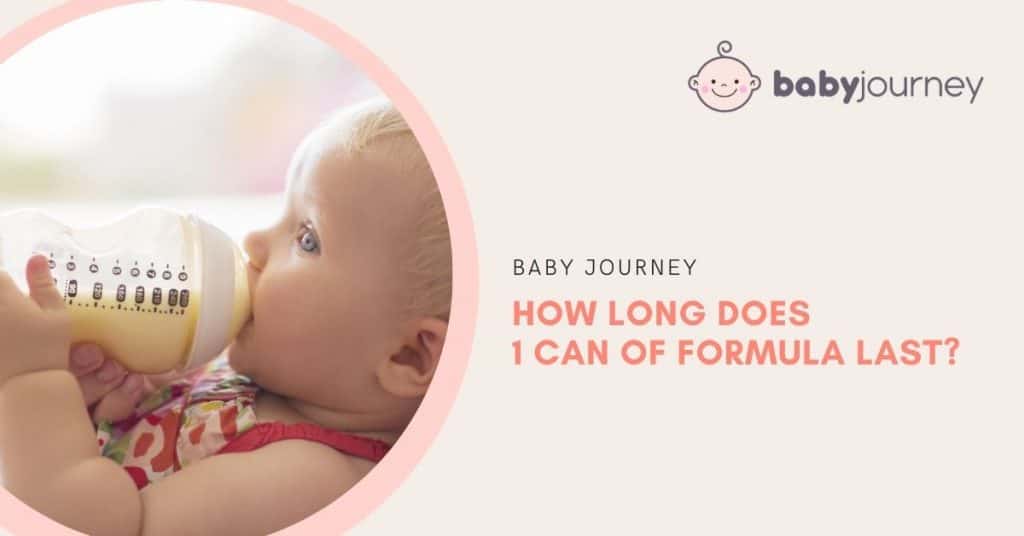
Hello my 2 month is having issue’s keeping down her formula she coughing vomiting and wheezing do I need to switch to soy formula?
Not necessarily. Best to check with your pediatrician before switching to soy formula in case there is any underlying condition. Hope your daughter is well now!